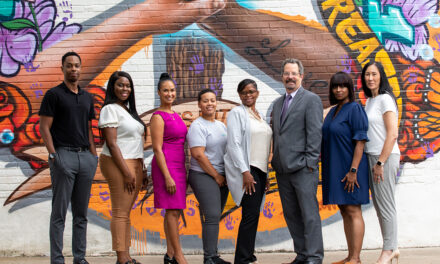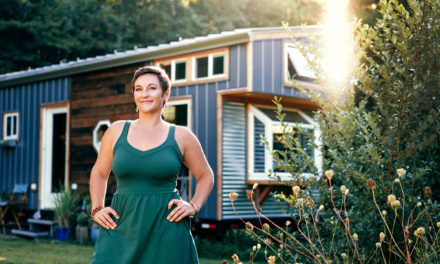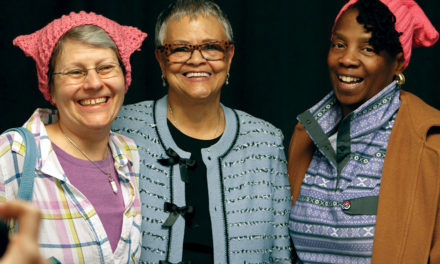At some point during each day for almost an entire year, I would stop dead in my tracks and relive the morning that Kai made his way to heaven. All my senses were imprinted with the memories—first the smell when I walked into the hospital that day, then the way his chubby body looked, his belly distended, and the turn of his head when he heard my voice. With the incessant beeping in the background, I remember rushing to wash my hands and touch his face so he knew I was there, and then doctors and nurses and respiratory therapists at his bedside, faces grim with worry.
The beeping got faster, the voices became more panicked, and someone handed me a phone to call my husband Omar. They said, “It has to come from you. It has to. Tell him to come now.” I remember gravel in his voice on the line, saying, “He’s gone, isn’t he? He’s already gone.” I passed the phone to someone next to me. And then the beeping got more intense, voices yelling, “Get him in Mom’s lap! Do it now!” Bodies were moving quickly, but I was left hovering, suspended in slow motion. I held my sweet baby boy in my arms as he took his final breaths. It was a moment that I will be able to smell, taste, and feel every day for as long as I live.
That was June 5, 2013, and after shuttling back and forth from our home in San Francisco to care for his older sister, Zara, and his twin sister, Malia, to the NICU for 174 days, we came home with empty arms. Our son, Kai Alexander Shamiyeh, passed away after an almost 6-month fight for his life, his tiny body unable to overcome the hole in his heart he was born with or the chronic lung disease and pulmonary hypertension he had developed from being on a ventilator.
Parents aren’t supposed to outlive their children. Babies aren’t supposed to die. Yet we were left with this frightening new reality. We had to wake up each day and choose to live, choose to walk one foot in front of the other, and choose to celebrate our angel, despite not being able to hold him in our arms. Malia was just about to celebrate her 6-month birthday and Zara was not yet 3 years old. Our girls needed their mom and dad, and I couldn’t imagine how I was going to be strong enough to do anything but crawl into my bed and cry.
The first year was a complete fog. I took an extended leave of absence from my job as a middle school teacher because 2 months didn’t seem like enough time to heal. The students and their parents knew I was having twins, and I feared facing them, having to explain over and over that one of my babies had died. I didn’t know if I could even find the words to tell 13-year-olds what I couldn’t comprehend myself.
When I think of myself from that time, so raw and wounded, I wish I could tell her that things would be ok, that at some point the vivid and crushing memory of the day we lost Kai would be soothed by the joyous and peaceful moments of Kai’s life. As I reflect on that year, I think about the things that helped me the most.
I found solace in people who knew.
I never knew how important it would be to seek out support from other parents who have experienced the loss of a child. In the weeks and months following Kai’s passing, I resisted support from outside sources. I felt isolated, overwhelmed with sadness, and unable to integrate myself back into my daily routines. I was angry. I read blogs and joined Facebook support groups, and it helped a little to know that other families had been through heartache like ours and made it through. However, when you are reading by the light of your phone in the middle of the night, all alone, with tears streaming down your face, it feels like the epitome of isolation.
So about 3 months after Kai passed, I decided to attend a local HAND (Helping After Neonatal Death) meeting. I was very reluctant, but a friend who had lost her son only 2 weeks after his birth encouraged me to go. During the meeting, each parent in the circle had a chance to tell the story of their child or in some cases, children. The meetings lasted for about 2 hours—some nights I left feeling encouraged, and other nights I felt overcome with the weight of loss, both ours and theirs.
 Each week, we would see familiar faces and brand new ones. We would talk to each other and compare stories about re-engaging with our lives and what had become our new normal. I learned that 90,000 children die annually in the United States before their first birthday. And for the first time since Kai passed away, I did not feel alone. Despite always having my husband to talk to and share with, we needed to connect with other families and know that we were not walking this path alone.
Each week, we would see familiar faces and brand new ones. We would talk to each other and compare stories about re-engaging with our lives and what had become our new normal. I learned that 90,000 children die annually in the United States before their first birthday. And for the first time since Kai passed away, I did not feel alone. Despite always having my husband to talk to and share with, we needed to connect with other families and know that we were not walking this path alone.
About 10 months after Kai passed, I attended a retreat for bereaved mothers in Ojai, Calif. It was hosted by three amazing women, two of whom had also lost children. We practiced yoga and meditation, shared our stories of loss, cried with each other, talked about fears for the future and held onto hope that we could all move forward in a positive direction. It wasn’t a place to wallow or pity one another, it was a safe place to talk, be ourselves, and share the ways in which we would celebrate and honor our children that we could no longer hold. We have a private Facebook page where we still keep in touch and do our best to support each other in our journeys. We journal and scrapbook together, share intimate details about life after loss, and lift each other up. I admire and respect these women so deeply for the lives they are living today. These lifelong friends are standing against the odds and living deep and meaningful lives for their young ones who watch over us from above. I am honored to call them my friends.
 I learned that talking about him helps.
I learned that talking about him helps.
I have friends and family who still find it difficult to speak Kai’s name in fear that they will make me sad. Massachusetts Senator Elizabeth Warren said it best, “If you know someone who has lost a child, and you’re afraid to mention their child because you think you might make them sad by reminding them that they died—you’re not reminding them. They didn’t forget they died. What you’re reminding them of is that you remember that they lived, and that is a great gift.”
I try to be honest with the people in my life and share with them what I need, even as I discover that myself. I talk about Kai every day and hope to make it comfortable and clear to the people who love me that it brings me joy. Often times, I have friends text me or send me a message when they think of Kai or are reminded of him for one reason or another, and this always makes my day. All we want is for our children to be remembered.
I allow myself to have conflicting emotions.
It is absolutely possible to feel intense sadness and joy all at the same time. The morning after Kai passed away, I remember waking up and looking at my husband and saying, “What do we do today?” We took our girls to Golden Gate Park, rode on the carousel, and pushed them on the swings. We needed them to feel like everything was going to be ok, even if we didn’t quite believe it yet. I remember feeling like a fish out of water and like people were staring at me, like I should be home grieving. I couldn’t shake the feeling that people around me were looking back with judgment and pity. We had spent so much time in the hospital, and to watch my daughters playing and laughing—being kids—felt strange, but it also felt amazing. As a parent, you have the responsibility to wake up and take care of your children, and so we play, we laugh, and we remember Kai together. We cry, and make a safe space to feel sadness and joy, all at the same time.
I don’t look for a reason why.
I have never looked to friends or family to explain Kai’s death, nor have I ever wanted that. I mainly just need people to be there for support. When people say, “He’s in a better place now,” “It just wasn’t meant to be,” “At least you have your girls,” or “There’s always time to have more kids,” it hurts. When my father passed away, no one ever said, “At least you still have your mom.” The idea that you can replace your child or justify your loss in any way is ridiculous and damaging to the relationships that I have with these people. It isn’t necessary to find the right thing to say or do. Just be present. Speak my child’s name. Ask if I’m ok. Sit with me. Don’t fill empty silences with words. Nothing can justify, explain, or make right the loss that we have endured. Sit with us and be.
I accept that I am different now.
It has been just over 3 years since Kai passed away, and I am an aspiring nurse. I look back and divide my life into two parts—before and after loss. Inevitably, Kai’s life—and death—changed all of our lives in so many ways. I am a stronger mother, better friend, and more generous of spirit now. And while I’d rather have my son here with me, I don’t regret one breath or one moment of his short life. Because those are ours, and we can treasure them forever.










thank you!!! thank you for writing this and putting out there exactly, to a t, what I feel about the loss of my son Zyler at 6.5 months old. he was my first, I now have 2 others living and complex emotions (on a daily basis), doesn’t even do the feelings justice. I went to nursing school after my loss and focused on that as it was a method of avoidance enabling my heart and brain a much needed break. I appreciate your words and a sense of hope that comes along with it. I wish you continued love, peace, and endless support. ♡ Chrissy
Thank you Anne for having the courage to write this incredible account of such a special time in your life. We too lost Ella at four months (and 5 long hard and painful days), to the same condition.
My heart goes out to you in gratitude that you have put these words together. I know you will have helped many people like myself who know the wonder of Parenting a beautiful baby who comes into the world to make our lives better and sadly isn’t able to stay. We wonder if Ella came long enough to teach us many wonderful things and stayed as long as she was physically able to. I too am an educator here in Vienna and I think we are lucky to be in caring professions – that you will be a nurse is a blessing to all those that you will meet, I’m sure of it.
I wish you all in your family the very best and thank you again for sharing your positivity with those of us who can relate to it. Very grateful 🙂
Martha
An amazing and inspiring story of strength and growth. Thank you